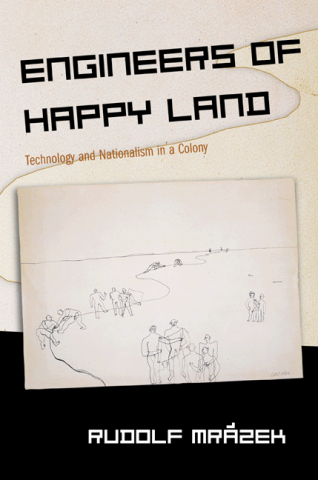

Most ebook files are in PDF format, so you can easily read them using various software such as Foxit Reader or directly on the Google Chrome browser.
Some ebook files are released by publishers in other formats such as .awz, .mobi, .epub, .fb2, etc. You may need to install specific software to read these formats on mobile/PC, such as Calibre.
Please read the tutorial at this link: https://ebookbell.com/faq
We offer FREE conversion to the popular formats you request; however, this may take some time. Therefore, right after payment, please email us, and we will try to provide the service as quickly as possible.
For some exceptional file formats or broken links (if any), please refrain from opening any disputes. Instead, email us first, and we will try to assist within a maximum of 6 hours.
EbookBell Team

4.4
22 reviewsBased on close reading of historical documents--poetry as much as statistics--and focused on the conceptualization of technology, this book is an unconventional evocation of late colonial Netherlands East Indies (today Indonesia). In considering technology and the ways that people use and think about things, Rudolf Mrázek invents an original way to talk about freedom, colonialism, nationalism, literature, revolution, and human nature.
The central chapters comprise vignettes and take up, in turn, transportation (from shoes to road-building to motorcycle clubs), architecture (from prison construction to home air-conditioning), optical technologies (from photography to fingerprinting), clothing and fashion, and the introduction of radio and radio stations. The text clusters around a group of fascinating recurring characters representing colonialism, nationalism, and the awkward, inevitable presence of the European cultural, intellectual, and political avant-garde: Tillema, the pharmacist-author of Kromoblanda; the explorer/engineer IJzerman; the "Javanese princess" Kartina; the Indonesia nationalist journalist Mas Marco; the Dutch novelist Couperus; the Indonesian novelist Pramoedya Ananta Toer; and Dutch left-wing liberal Wim Wertheim and his wife.
In colonial Indies, as elsewhere, people employed what Proust called "remembering" and what Heidegger called "thinging" to sense and make sense of the world. In using this observation to approach Indonesian society, Mrázek captures that society off balance, allowing us to see it in unfamiliar positions. The result is a singular work with surprises for readers throughout the social sciences, not least those interested in Southeast Asia or colonialism more broadly.